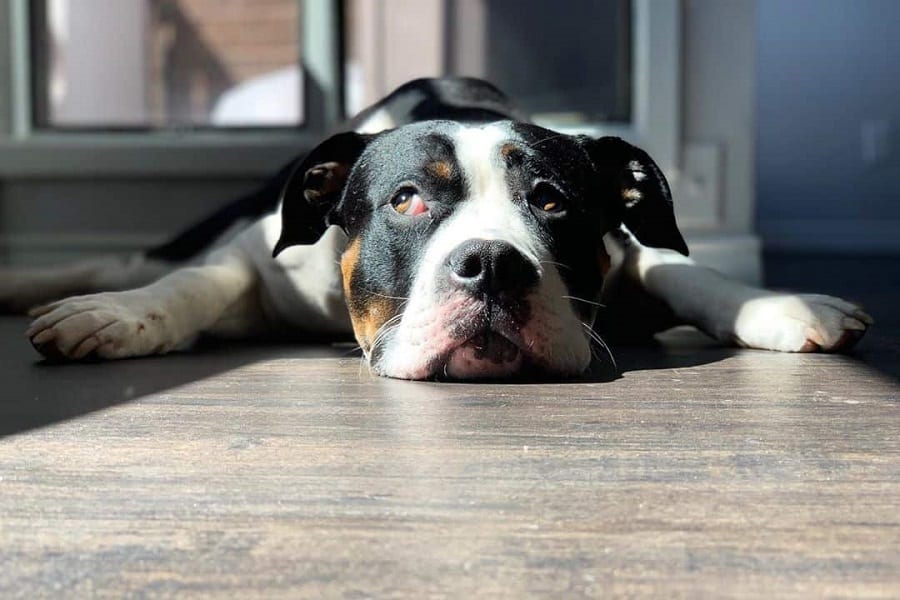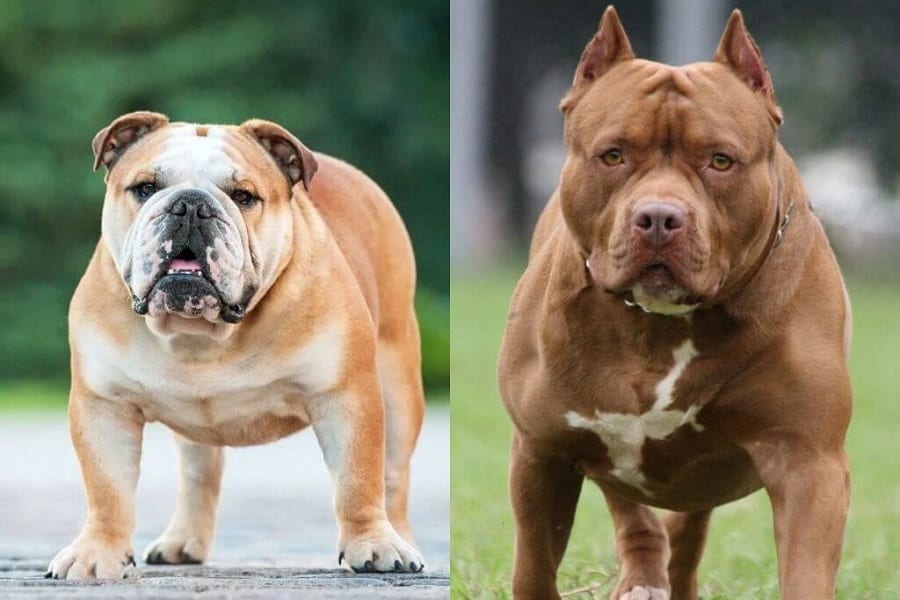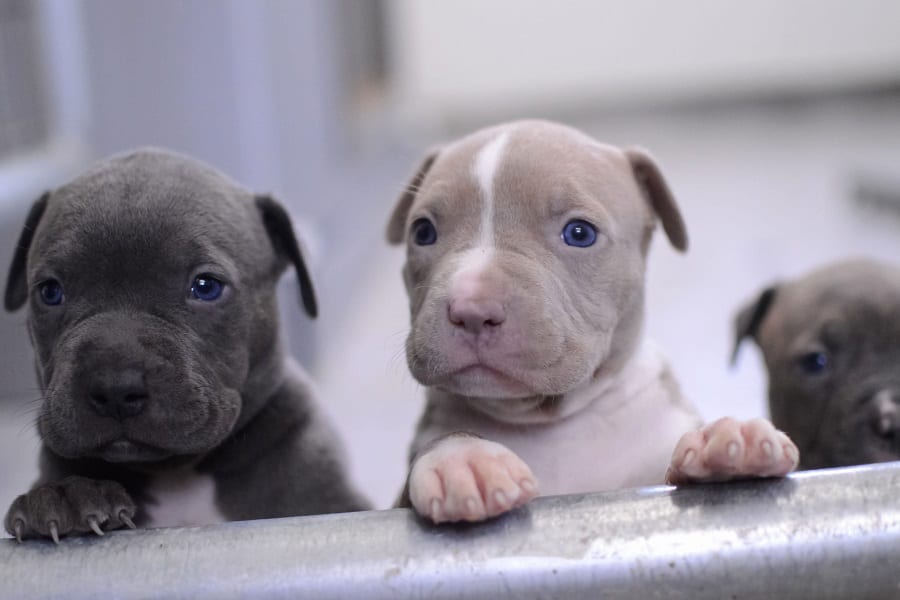Last Updated: 2 years ago
Despite being one of the most human-loving breeds, Pitbulls are often judged by their aggressive nature and unpredictable behavior.
Behind the layer of shredded muscles and huge physic, they are big old softies who will adore you with a fierce love. Energetic and loving, Pitties deserve a loving home and some fantastic human companionship for a happy, healthy, and full dog life.
If you are considering adopting a Pitbull but prone to allergies, you may be wondering if the Pittie is a hypoallergenic dog. First, you need to understand what hypoallergenic means.
What does it mean for a dog to be Hypoallergenic?
For something to be hypoallergenic, it means that it is unlikely to cause a reaction. When it comes to canine breeds, it means your dog does not cause any allergic reaction in you.
Some dogs are categorized as hypoallergenic because they either do not shed any fur or shed very little of it.
The factors that determine whether a dog is hypoallergenic include:
- How much a dog sheds
- Amount of dander it produces
- How many allergens are hidden in the skin, saliva, and urine?
Shedding
Well, most dogs shed. Some dogs have a soft undercoat, while others have a stiff upper coat. Pitbulls are single coat dogs, and while they don’t shed as much as double-coated dogs, they still do shed.
Shedding is good for your dog, and seasonal shedding protects your dog from harsh winters. However, it could mean extra irritants for you.
Dander
Dander is nothing but dead skin cells that your dog sheds. If shedding of fur causes allergies, you may exhibit an allergic reaction to dander as well.
These tiny dander flecks get into your bed, the carpet, furniture, and clothing. It will lead to pet dander allergy symptoms in their owners like sneezing, wheezing, difficulty breathing, runny nose, and even fever!
Allergens
When it comes to providing a thriving breeding ground for allergens, skin and fur aren’t the only miscreants. If your dog is a big drooler or urinates all over the house, you may end up with some allergic reactions.
The protein that’s in the saliva and urine of your pooch can also cause allergens.
Are Pitbulls Hypoallergenic?
Firstly, no canine is 100 percent hypoallergenic. Some are just more hypoallergenic and cause few issues for their owners. Did you know, around 10% of people in the US are allergic to dogs!
Single-coat dogs shed less and spread lesser dander in comparison to dogs with an undercoat. Although Pitbulls are single-coat dogs, they do shed twice a year and a little throughout the year.
Along with fur shedding comes dander – Pitbull’s fur houses dander. And when you reach out for those warm Pittie cuddles, it will latch on to you!
The most significant danger for an allergic reaction from your Pitbull comes from dander.
Pitbulls being plenty slobbery, you are also at risk from their saliva causing an allergic reaction.
Both dander and saliva (when it dries up) become airborne, increasing the risk even further.
What are the causes?
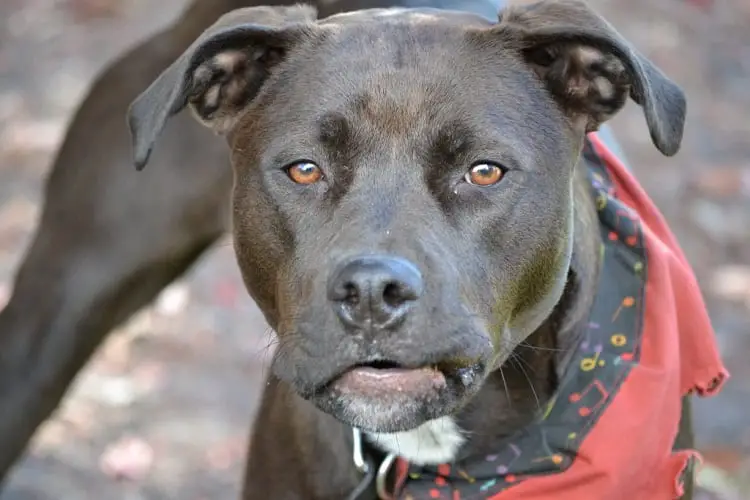
We saw that Pit shedding, dander, saliva, and urine are the causes of allergens. Let us look at the causes in greater detail and see why and how they affect you.
- Allergies happen when the immune system reacts to any foreign substance such as pollen, dust, or pet hair. It is for your protection.
- The immune system produces antibodies to counter the effects of allergens. If you have allergies, the immune system produces antibodies. These identify the specific allergen that may be dangerous for you.
- When the immune system comes in contact with the allergen, it creates inflammation of the nasal passages. Overexposure will result in inflammation of the airway.
Allergens coming from Pitbulls are more commonly found in their dander. Other sources are on their fur and in their saliva, urine, and sweat.
Dander is the worst issue in small flakes and can stay airborne for extended periods. It can also fasten easily in the furniture. It latches onto you and on your clothes during petting sessions.
Your Pitbull’s saliva may attach to the carpets, bedding, clothing, and pieces of furniture in your house. Over time, the saliva dries up and becomes airborne.
How to help your pitbull if he’s hypoallergenic?
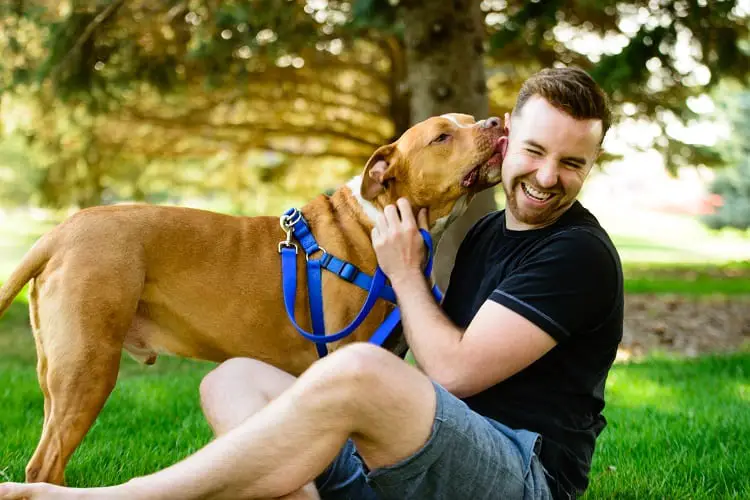
While Pitbulls may not be the most hypoallergenic breeds, there are certain things you can do to make your home more habitable and allergy-free.
1. Groom your Pitbull pooch regularly – Use a good grooming brush to brush your Pitbull’s hair more often than usual to prevent the spread of allergens.
2. Bathe the Pitbull with an oatmeal shampoo once a week – Usually, Pitbulls can go a month without needing a bath. But if prone to allergies, give him a weekly bath with a gentle oatmeal shampoo.
3. Don’t let them lick your face – Sorry! Although hard to resist, Pitties give slobbery kisses, which will spread allergens.
4. Wash your hands after a petting session – Washing hands thoroughly after petting and grooming wash away the allergens that may have been transferred to you.
5. Clean your house diligently and vacuum it regularly – Your Pitbull’s fur is inevitably left all over your house. It can get in the furniture, on the bedding, under the couches and bed, etc. So investing in a vacuum particularly tailored for removing dog hair is paramount to stem the spread of allergens.
6. Designate a space for your Pitbull – Give your Pitbull his own space in your house. It will condense the shedding to one place, making it easier for you to clean up.
7. Purify the indoor air and replace old air filters – Air purifiers for pet dander may help prevent the occurrence of allergic reactions. To counter pitbull shedding and spread of dander, the air filter in your house needs to be changed every month.
8. Change their food – Seasonal and food-based allergies can significantly affect a dog’s skin, making it dry, itchy, or irritated. When this happens, your Pitbull tends to scratch more, resulting in even more shedding than usual. More allergies is the outcome. It is a vicious circle! Consult a vet before making any dietary changes. Omega-3 fatty acids incorporated in their diet will help reduce dry skin and dander as well.
9. Given them allergic medication – It is for you, not your pooch. Your doctor may prescribe allergy medication like Antihistamines, Corticosteroids, Decongestants, or Leukotriene modifiers to combat pet allergic symptoms.
Final Thoughts
Pitbulls make for the most amazing companions. They will make their way into your heart so easily, and you cannot do without them!
However, if you are prone to allergies, it can be a miserable time for you. Unfortunately, if you are one of those people, a Pittie may not be the best companion for you. Pitbulls are somewhere in the middle of the canine pack when it comes to being hypoallergenic.
But if you are bent on a Pittie, then a few extra steps, care and grooming, and allergy-reducing lifestyle changes can help you a long way. While they are not hypoallergenic, they are so full of warmth and love. After all, isn’t that what having a dog is all about!?
We hope this article was enough to alleviate your fears about allergic reactions from Pitbulls and help you decide if they are the right fit for you and your dog-loving family.
Happy Pitbull Parenting!

